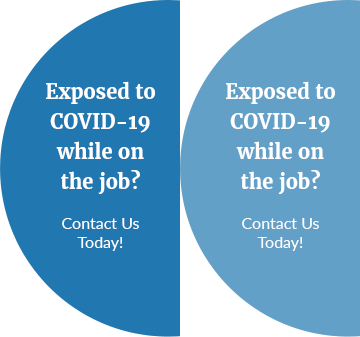Can I Collect Workers’ Compensation & Social Security Disability Benefits At The Same Time?
When an employee gets hurt on the job or suffers an occupational illness, they are normally eligible to file a claim for workers’ compensation benefits. Workers’ comp provides coverage for reasonable and necessary medical expenses, a percentage of lost earnings, rehabilitation and retraining costs, and permanent disability benefits.
There are a number of cases in which a workplace injury has long-term effects. When this happens, an injured worker may not be able to go back to their current job, and they might not be able to perform any other type of gainful activity. This could qualify them for Social Security Disability (SSD) benefits as well.
Social Security Disability provides benefits to those who have a debilitating condition that meets the Social Security Administration’s definition of a disability. In order to qualify, an individual must have obtained the required number of work credits, which generally means having worked for 40 quarters or 10 years, although there are different requirements for younger workers.
Injured workers are often confused about whether they can collect workers’ comp and SSD benefits at the same time. It is possible to draw benefits from both programs simultaneously if the claimant is eligible, but there are some limitations (more on this later). However, even when someone is eligible, qualifying for these programs can be extremely difficult.
Workers’ compensation is a no-fault program, meaning that employees can usually obtain benefits regardless of what caused the injury. This makes it much easier to recover compensation than through a personal injury claim, for example, because there is no need for the injured worker to prove negligence.
But that said, the workers’ comp claims process is far more complicated than it should be, and insurers will often look for any reason they can to deny a valid claim. Their hope is that the injured worker will give up on pursuing the benefits that they deserve, and this is frequently what happens if the worker does not have strong legal representation.
Getting qualified for Social Security Disability is even more difficult than workers’ comp. Nationally, approximately 65% of SSD claimants are denied benefits in their initial application, and 55% are denied upon appeal. The odds are a little better in Pennsylvania, where approximately 61% of claimants are denied benefits initially and 50% are denied after an appeal. Claimants are about three times more likely to get approved (for SSD benefits) if they have legal representation.
Because of the major challenges that workers’ compensation and Social Security Disability claimants face, it is strongly advisable to retain an attorney to increase the chances of a successful outcome. This is especially true if you are looking to obtain benefits from both programs. Ideally, it is best to work with a firm that handles both types of claims and has an in-depth understanding of how the two programs interact.
Receiving Workers’ Compensation and SSD Benefits at the Same Time
As we touched on earlier, although you can receive workers’ comp and SSD benefits simultaneously, this does come with some limitations. Specifically, federal law limits the combined benefits from the two programs to no more than 80% of the worker’s average monthly wage.
If your combined benefits exceed 80% of your average monthly wage, then in most states (including Pennsylvania), the Social Security Administration will reduce their benefit payment to bring it down to the allowed maximum. This is known as an “offset”. There are about 15 states that use a “reverse offset” approach in which the state workers’ compensation benefits get reduced instead of SSD benefits.
With many workplace injury cases that result in a long-term disability, the workers’ compensation provider ends up offering a lump sum settlement so they can close out the file. When this happens, it can complicate the SSD benefit offset. Social Security will closely examine the specific language of the settlement to determine how the lump sum will be offset.
This is another reason why it is critical to work with attorneys who have extensive knowledge of both programs. Our attorneys will carefully craft the language of any lump sum settlement in a way that minimizes the SSD benefit offset. We will also ensure that medical and legal expenses are excluded from the portion of the lump sum that is offset by Social Security.
Contact a Seasoned Pittsburgh Workers’ Compensation and Social Security Disability Firm
The Social Security Disability and workers’ comp claims processes can get very complicated, and when you are trying to qualify for both programs at the same time, it becomes even more of an uphill battle. If you need legal help with either or both of these types of claims, contact Caroselli, Beachler & Coleman for assistance. Message us online or call our office today at 412-567-1232 or toll-free at 866-466-5789 for a free consultation with one of our attorneys.






